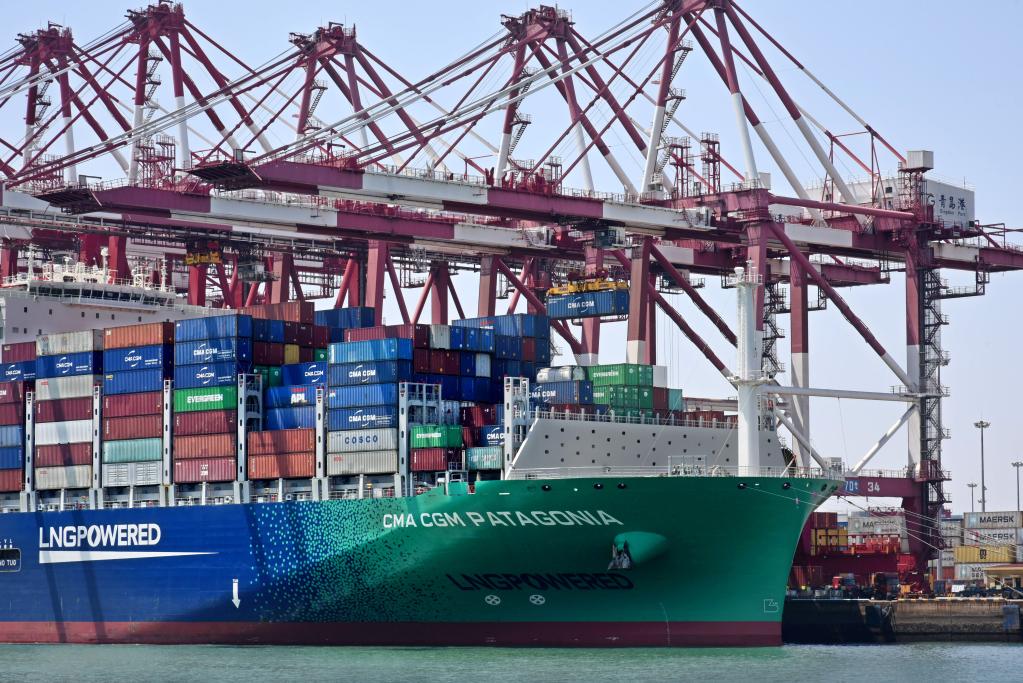
Photo taken on March 30, 2021 shows an exterior view of the International Monetary Fund (IMF) headquarters in Washington, D.C., the United States. (Photo by Ting Shen/Xinhua)
The Chinese economy has grown at an average annual rate of 4.5 percent, higher than the world average. Currently, China's economic growth is stabilizing and rebounding, with vast development potential in the future, the premier said.
BEIJING, March 1 (Xinhua) -- Faced with a complicated international and regional situation, China's ongoing friendly cooperation with the International Monetary Fund (IMF) is not only beneficial to both sides, but also to the international community as a whole to jointly meet the challenges it faces, Chinese Premier Li Keqiang said on Wednesday.
Li made the remarks during a phone conversation with IMF Managing Director Kristalina Georgieva.
Noting that China is the world's largest developing country and an active promoter of South-South cooperation, Li said that China is committed to closing the North-South divide.
Addressing low-income countries' debt problems necessitates the participation of all creditors, Li said, noting that China remains ready to play a constructive role in resolving relevant countries' debt issues within a multilateral framework.
At the same time, he said, China urges all parties to work together and share the burden fairly in order to assist low-income countries in overcoming economic challenges and achieving sustainable development.

Photo taken on May 1, 2022 shows a container vessel docking at the Qianwan Container Terminal in Qingdao, east China's Shandong Province. (Xinhua/Li Ziheng)
Last year, unexpected factors such as the COVID-19 pandemic had a significant impact on China's economy, Li said, noting that the government responded quickly and decisively, implementing established policies and measures ahead of schedule, and introducing a package of policies and ongoing measures to stabilize the economy, thereby also stabilizing the macroeconomic market.
Throughout the year, cities and towns have added over 12 million new jobs, Li said, adding that in the face of high global inflation, the consumer price index increased by only 2 percent.
In the three years since COVID-19 broke out, China has pursued innovative macroeconomic regulation, focusing on stimulating market vitality and social creativity through measures such as tax and fee cuts, Li said.
The Chinese economy has grown at an average annual rate of 4.5 percent, higher than the world average. Currently, China's economic growth is stabilizing and rebounding, with vast development potential in the future, the premier said.
Georgieva said that China's economy, which has been faring well recently, has contributed to the world's economic development, and will continue to be the main driver for global economic growth, adding that the IMF has significantly raised its expectations for China's economic growth.
Georgieva thanked China for its positive and constructive attitude, as well as its efforts to assist developing countries in dealing with debt crises, adding that the IMF is ready to strengthen coordination and cooperation with China on this issue.




 A single purchase
A single purchase









